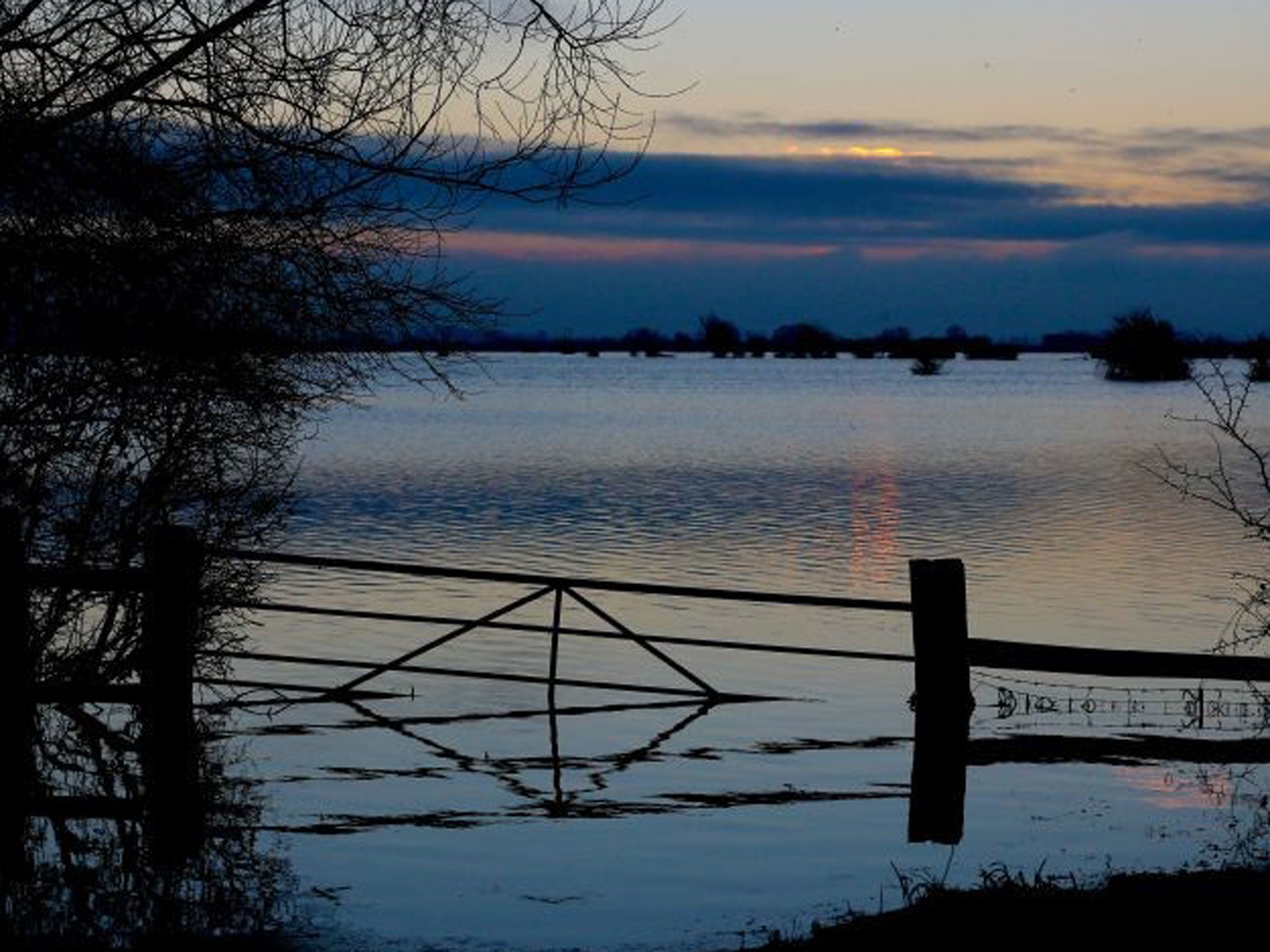Environment Agency chief Lord Smith under fire in Somerset as he admits: I’ve not visited flood areas

Your support helps us to tell the story
From reproductive rights to climate change to Big Tech, The Independent is on the ground when the story is developing. Whether it's investigating the financials of Elon Musk's pro-Trump PAC or producing our latest documentary, 'The A Word', which shines a light on the American women fighting for reproductive rights, we know how important it is to parse out the facts from the messaging.
At such a critical moment in US history, we need reporters on the ground. Your donation allows us to keep sending journalists to speak to both sides of the story.
The Independent is trusted by Americans across the entire political spectrum. And unlike many other quality news outlets, we choose not to lock Americans out of our reporting and analysis with paywalls. We believe quality journalism should be available to everyone, paid for by those who can afford it.
Your support makes all the difference.The chairman of the Environment Agency, Lord Smith, was condemned by farmers and politicians on Monday after admitting he hasn’t visited Somerset since large areas of the county disappeared underwater a month ago.
He alienated rural Britain further by suggesting that it doesn’t make financial sense to spend money protecting some agricultural land from floods, saying “Town or country, front rooms or farmland…There’s no bottomless purse and we need to make difficult but sensible choices about where and what we try to protect”.
Lord Smith went on to apologise for the first time for not doing more to tackle flooding in Somerset, a move which helped to appease some locals but still left many angry.
“It is not until you get on the ground that you realise what it’s like – it’s disappointing that Lord Smith hasn’t visited since last year, it would have been nice,” said Duncan McGinty, head of Sedgemoor District Council.
Anthony Gothard, a dairy farmer near Thornton, near Somerset, added: “It makes me angry and fed up. Does he [Lord Smith] not know about rural life – if you take the industry out of rural areas, what are people going to do?”
“It partly comes down to whether we want food security or not. If we are not fussed about producing food then let the floods come – except that by taking away the farmland, you are taking away jobs and the village life. Our farm supports 12 families, so that’s 12 families that wouldn’t be living in the area and spending money locally,” he added.
Local MPs were also unimpressed by the implication of Lord Smith’s comment that “rules from successive governments give the highest priority to lives and homes; and I think most people would agree that this is the right approach”.
Ian Liddell-Grainger, the Conservative MP for Bridgwater and West Somerset, said: “It is utterly insensitive to think of choosing between households and farms. This is really upsetting and beggar’s belief. I would ask Lord Smith to resign but he does not have that kind of decency.”
David Heath, Liberal Democrat MP for Somerton and Frome, said: “We are increasingly bemused by the number of armchair experts from hundreds of miles away who seem to know more than we do. People in rural areas are as entitle to consideration as anybody else.”
Lord Smith, who earned £97,365 last year for his three-day a week chairmanship of the Environment Agency, insisted on Monday that he was doing a good job and had the full support of the government.
He strongly refuted concerns that his 10 other roles, including chairmanships of the Advertising Standards Authority, the Donmar Warehouse Theatre and the Wordsworth Trust, left him too little time to concentrate on the Environment Agency. He said he had carried out his work at the agency “assiduously”, pointing out that his other roles were relatively small, and said he was “very proud” of the work he and the agency had done.
However, he did admit that more could have been done to tackle flooding in Somerset, where dredging of the rivers Parrett and Tone on the Somerset Levels, has been extremely rare in recent years – despite sustained pressure to do more.
“We probably haven’t done as much as we should have done and I regret that,” Lord Smith said.
Although people queued up to criticise Lord Smith on Monday, he was praised in some quarters for being realistic that, with flooding set to intensify in the coming years, it will not be possible to protect the entire country.
Furthermore, they said his hands were “tied” because he was operating at a time when the Treasury had slashed the agency’s budget, significantly reducing the funds at its disposal for dredging.
Julian Taylor, a councillor for Eastover Ward in Bridgwater, said: “I am disappointed that the Treasury mandarins are pulling the strings. Lord Smith clearly has his hands tied.”
Environment Secretary Owen Paterson also stood behind the Environment Agency and Lord Smith, saying both had done a “great job” – pointing out that while 7,500 properties had floods since the start of December, they existing flood defences had protected 1.2m properties.
The Met Office confirmed Monday that January was the wettest month the UK has seen since records began in 1910 – while figures from the Radcliffe Meteorological Station at Oxford University went even further, saying it was the wettest winter month since its records began – in 1767. The Met Office also warned that parts of Britain should brace itself for winds of up to 80mph on Tuesday and Wednesday and heavy rain on Thursday.
Join our commenting forum
Join thought-provoking conversations, follow other Independent readers and see their replies
Comments